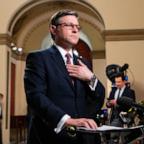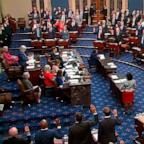Breaking Silence on Being Gay and Muslim
New documentary explores the struggles of gays and lesbians in the Muslim World.
July 10, 2008 — -- A new film about gays and lesbians in the Muslim world is challenging notions of right, wrong and religiosity in Islamic culture.
Filmmaker Parvez Sharma says his film "A Jihad For Love" is an effort to shed light on the social and spiritual struggle of homosexuals who are devout Muslims. It tells the story through personal narratives of gays across 12 countries. In the film, Sharma compiles a vision of Islamic life through the eyes of the gay faithful.
"I felt it really important to empower gay and lesbian Muslims to tell the story of Islam," Sharma told ABC News.
Sharma, who is gay, said he was driven to make the film in part by the desire to "come out as a Muslim" after Sept. 11, hoping to broaden public perception about the diversity of Islam's followers.
The stories in the film are intimate, with main characters that include a gay Imam in South Africa, a lesbian couple in Turkey, homosexuals in Egypt and a group of gay Iranians fleeing the country to seek asylum in Canada.
The characters struggle with their societies, some escaping persecution and abuse. They have strong bonds with their families, but forge a second family among other gay believers.
Muhsin Hendricks, an Islamic scholar in South Africa, openly and actively engages other Muslims in discussions about homosexuality. Hendricks came out on his radio show, setting off an angry and threatening response from listeners of the show.
"I think Muhsin should be thrown off a mountain or burned or something like that," we hear one caller say.
"We should bring back the death penalty for this guy. He's bringing down the name of Islam," says another.
In the film, Hendricks voices the scholarly opposition, trying to overturn an interpretation of Islam as categorically against homosexuality. He argues that the book of Lot, with its condemnation of Sodom and Gomorrah, condemns sinners for molestation and rape -- not simply for being gay.
"We cannot find answers within orthodox Islamic thinking. We have to use one of the principles of Islam, 'Ijtihad,' meaning independent reasoning, to find a place for us within Islam," he says. In opposition, another fellow Muslim in the film accuses Hendricks of interpreting Islam to suit his life choices.




